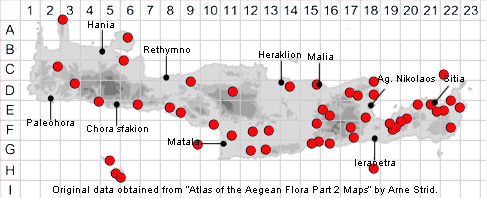SPECIES DESCRIPTION
ASTRAGALUS HAMOSUS
Family and Genus:- See- LEGUMINOSAE/Subgen. EPIGLOTTIS
Common Name:- Southern milk-vetch
Homotypic Synonyms:- Ankylobus hamosus, Hamosa astragalus,
Tragacantha hamosa.
Meaning:- Astragalus (Gr) Ankle-bone,(a plant with knotted roots).
Hamosus (L) Hooked at the tip, hooked.
General description:- Hairy short to medium annual.
Stems:-
1) Up to 60 cm, usually branched from the base, procumbent to ascending,
Leaves:-
1) Imparipinnate, 5-10(-15) cm.
a) leaflets, 9-11 pairs, oblong-obovate, emarginate or truncate, hairy beneath,
glabrous or subglabrous, above.
Flowers:-
1) Racemes, fairly dense, with 5-14 flowers borne in clusters of 5-14 on peduncles
that are half as long as the leaves.
2) Calyx, 5-6 mm.
3) Corolla, inconspicuous and soon deciduous, white to pale yellow.
4) Standard, 7-8 mm.
5) Stamens, 10.
Fruit:-
1) Legume, 20-50 x 2-3 mm, linear, acuminate at the apex, curved for about a
semicircle, laterally compressed; beak short; valves not keeled, almost smooth,
with short appressed hairs.
Key features:-
1) Legume, 20-50 x 2-3 mm, not inflated.
Habitat:- Cultivated and fallow fields, roadsides, open grassland, sandy coastal
habitats. 0-600(-1200) m.
Distribution:- From NW Africa and Portugal eastwards to Greece. On Crete
sporadic with moderate distribution.
Flowering time:- Mid-Mar to May.
Photos by:- Steve Lenton
